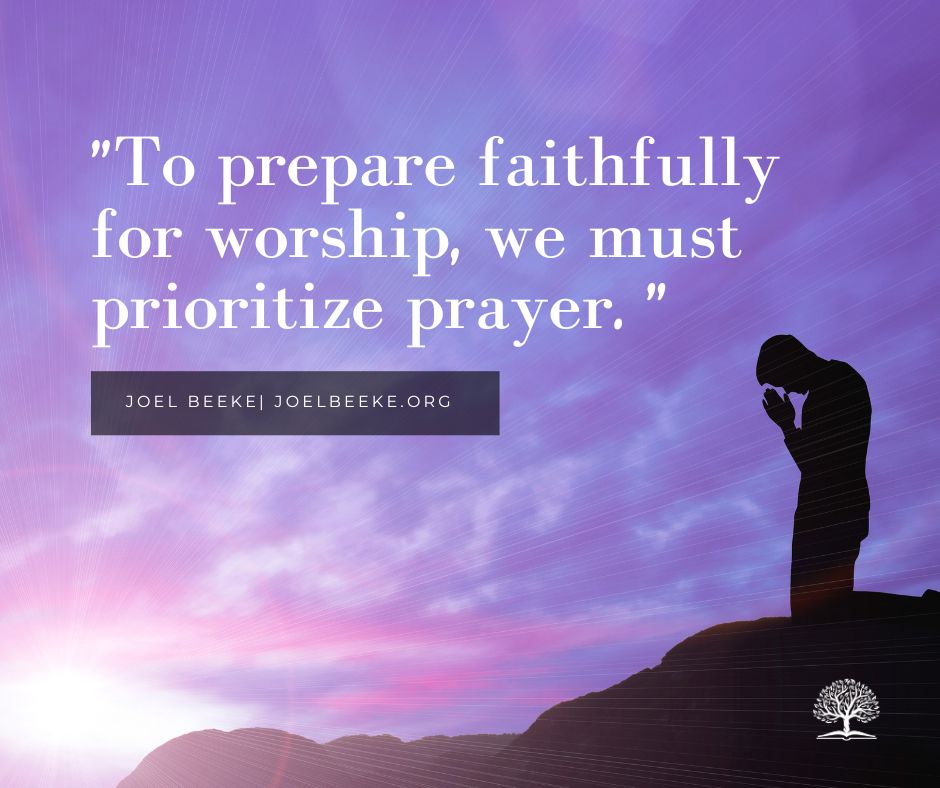
The Puritans held that all preparation is ultimately ineffectual apart from the Holy Spirit’s work. Stephen Charnock writes, “To render our worship spiritual, we should, before every engagement in it, implore the actual presence of the Spirit, without which we are not able to send forth one spiritual breath or groan, but be wind-bound, like a ship without a gale, and our worship be no better than carnal.” (Charnock, Works, 1:300.)
To prepare faithfully for worship, we must prioritize prayer. This practice is of vital importance in preparing for public worship. Prayer is an ordinary practice through which God supplies extraordinary grace. For John Owen, prayer “is the life of all preparation for every duty.” He adds: “[Prayer] is the principal means whereby we express our universal dependence on God in Christ, as also work our own hearts to a sense of our indigent estate in this world, with all our especial wants, and the means whereby we obtain that supply of grace, mercy, and spiritual strength, which we stand in need of, with respect unto the glory of God, and the increase of holiness and peace in our own souls.” (Owen, “The Practical Observance of the Lord’s Day,” 19:455–56.)
The practice of prayer in preparation for worship positions the worshipper to receive from God. The benefits of divine grace that pour forth through the ordinances of the Lord’s Day are not dependent on effort or performance but on a benevolent and gift-giving Father. The manner of prayer should flow from the depths of our souls. Watson writes, “We must pray with reverence, humility, fervency, and hope in God’s mercy…. He prays most fervently who prays most feelingly.” (Watson, Ten Commandments, 106.) The sincere prayer of the worshipper is one that is steeped in affection for our glorious, loving God. Knowing God rightly informs and fuels our hearts, bringing us to our knees in faith-filled prayer as preparation for worship.
Excerpt From
PURITAN REFORMED JOURNAL
Volume 9, Number 2 • July 2017
Joel R. Beeke, Editor








